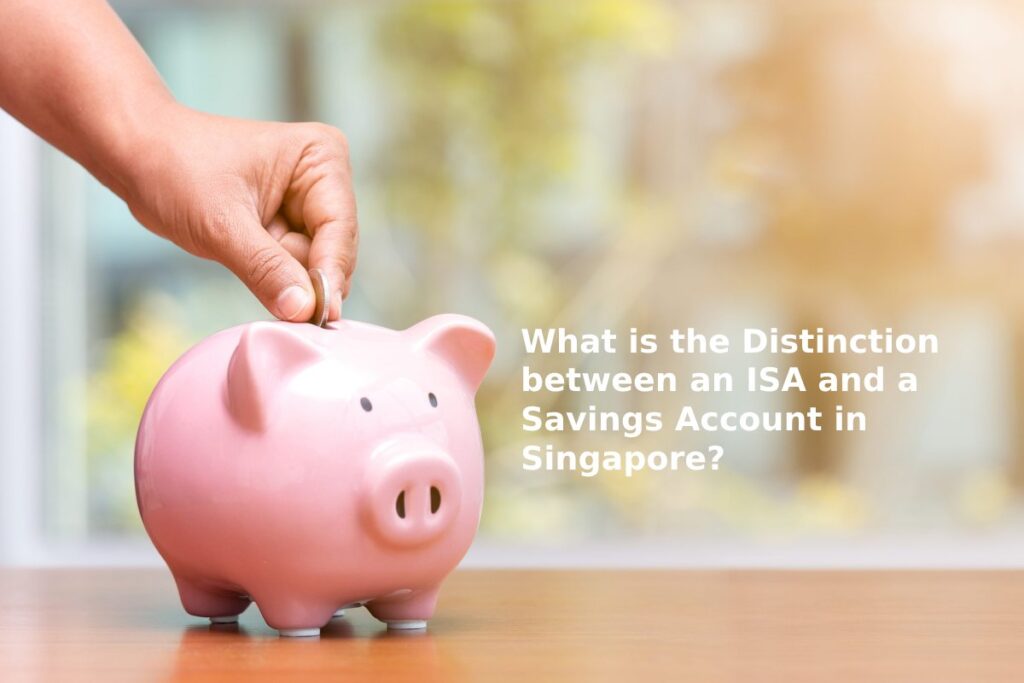ISA and a Savings Account in Singapore – When it comes to saving money, there are a few different options available in Singapore. This article will discuss the distinction between an ISA and a savings account. Both of these accounts have their benefits and drawbacks, so it is crucial to understand the differences before opening one. We will also provide an overview of the eligibility criteria for each type of account and how to open one. Let’s take a closer look at each option below.
What is an ISA and a Savings Account?
An Individual Savings Account (ISA) is a tax-free savings account available only to Singapore citizens and permanent residents. It is a long-term savings product that can provide high returns over time, with no capital gains tax or income tax on the interest earned. Contributions to an ISA are limited to $30,000 annually, and withdrawals are not permitted until the account holder turns 55.
A savings account is a deposit account offered by banks and other financial institutions in Singapore. It is designed for individuals who wish to save money without investing it in any particular asset class. Interest rates usually are lower than other types of accounts, but they offer easy access to funds with minimal fees. Deposit amounts are often limited, so you may have to transfer funds frequently if you need to withdraw large sums of cash.
Eligibility Criteria
To open an ISA, you must be at least 18 years old and a Singapore citizen or permanent resident. It would help if you also met specific income criteria the Monetary Authority of Singapore (MAS) set. Contributions can only be made from your funds and not those of any family member.
To be eligible for a good saving plan in Singapore, you must be at least 16 years old and have a valid Singapore Identification Card. However, if you are under 18 years old, the account will need to be opened under the name of a legal guardian. Most financial institutions have different eligibility criteria for their accounts, so checking with them before opening one is essential.
How to Open an Account
You can open an ISA by visiting any bank or financial institution in Singapore. You will need to provide proof of identity and your tax identification number before you can start making contributions. The maximum amount you can contribute annually is $30,000 per person.
Opening a savings account is relatively easy; all you need to do is visit the nearest bank or financial institution and fill out an application form. Once the application has been accepted, you will receive an ATM card and be able to access your funds immediately.
Benefits of each Option
An ISA offers several benefits over other accounts, such as low-interest rates and tax-free returns on interest earned. It also allows you to save for your future without having to pay tax on the money you earn from it. The only downside is that you can only withdraw funds once you reach the age of 55.
A savings account offers easy access to your funds with minimal fees, which makes them ideal for short-term saving goals or emergency funds. They are also typically insured by the Singapore Deposit Insurance Corporation (SDIC) up to a specific value, so if anything were to happen to the bank, your deposits would be protected up to an agreed limit.
Another benefit of having a savings account is linking it to other accounts, such as a checking account. It allows you to transfer funds between them quickly and manage your money more efficiently.
Drawbacks of each option
The main drawback of an ISA is that withdrawals are not permitted until you reach 55 years of age, so it should be used for long-term planning rather than short-term goals. In addition, the interest rates are usually relatively low compared to other types of accounts, so if you are looking for higher returns, there may be better options than an ISA.
Savings accounts typically offer lower interest rates than other types of accounts, such as ISAs or fixed deposit accounts, so you may be unable to benefit from higher returns on your money. In addition, some banks may impose a monthly cap or minimum withdrawal amount, which could limit how much money you can access from the account.
Conclusion
In conclusion, an ISA and savings account both have advantages and disadvantages depending on your financial goals. An ISA might be the best option if you are looking for long-term planning with tax-free returns. On the other hand, if you need easy access to funds or want to take advantage of higher interest rates, then a savings account might be the better choice. Ultimately it is essential to assess your individual needs and compare different accounts before making a decision.

